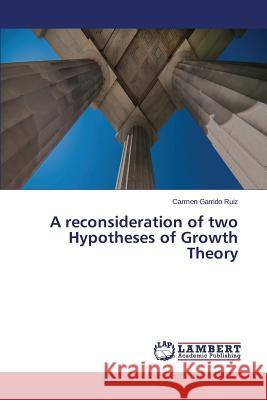A reconsideration of two Hypotheses of Growth Theory » książka
A reconsideration of two Hypotheses of Growth Theory
ISBN-13: 9783659479052 / Angielski / Miękka / 2013 / 304 str.
The one sector neoclassical model with exogenous technological progress is still the fundamental workhorse of growth theory. It rests on two powerful hypotheses: Aggregate technical progress exists, proceeding at an approximately constant growth rate; Technical change is neutral. These assumptions have important implications for the traditional specification of the aggregate production function, the way in which technical progress is introduced into growth models and more generally for how economists think about the growth process. This volume applies statistical techniques of data analysis to the so called Solow residual to understand to what extent total factor productivity growth is well characterized as an aggregate shock. In addition, US and Spanish aggregate and cross-sector evidence is explored to answer the question: Are we right to assume that factor shares of income are constant? Students interested in economic growth, technological innovation, business cycles, income distribution will appreciate an empirical investigation devoted to bring an in-depth look at the foundations of the most frequently used model of economic growth.
The one sector neoclassical model with exogenous technological progress is still the fundamental workhorse of growth theory. It rests on two powerful hypotheses: Aggregate technical progress exists, proceeding at an approximately constant growth rate; Technical change is neutral. These assumptions have important implications for the traditional specification of the aggregate production function, the way in which technical progress is introduced into growth models and more generally for how economists think about the growth process. This volume applies statistical techniques of data analysis to the so called Solow residual to understand to what extent total factor productivity growth is well characterized as an aggregate shock. In addition, US and Spanish aggregate and cross-sector evidence is explored to answer the question: Are we right to assume that factor shares of income are constant? Students interested in economic growth, technological innovation, business cycles, income distribution will appreciate an empirical investigation devoted to bring an in-depth look at the foundations of the most frequently used model of economic growth.











